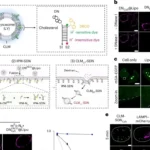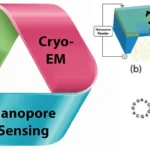Key Points
- 2024 Nobel Prize in Chemistry awarded for AI-driven protein structure prediction.
- John Jumper and Demis Hassabis were recognized for AlphaFold, and David Baker for computational protein design.
- AlphaFold revolutionized the prediction of protein structures. David Baker’s RoseTTAFold complements AlphaFold.
- AlphaFold’s potential in medicine and drug development remains promising but has not yet been fully realized.
For the first time, a Nobel Prize has been awarded to a scientific breakthrough powered by artificial intelligence (AI). The 2024 Nobel Prize in Chemistry was awarded to John Jumper and Demis Hassabis from Google DeepMind and David Baker from the University of Washington for their pioneering work in AI-driven protein structure prediction and design. Jumper and Hassabis developed AlphaFold, a tool that predicts protein structures with remarkable accuracy, while Baker was recognized for his contributions to computational protein design using AI.
Since its launch, AlphaFold has transformed biological research. It allows scientists to predict the three-dimensional structures of proteins from amino acid sequences, a feat once considered impossible. Protein structure prediction, vital for understanding biological processes and developing new treatments, has become significantly faster and more accessible thanks to this breakthrough.
AlphaFold’s impact was first felt in 2018 when DeepMind’s AI model won the Critical Assessment of Protein Structure Prediction (CASP) competition. However, AlphaFold2, unveiled in 2020, revolutionized the field. Its predictions were so accurate that they were virtually indistinguishable from experimentally determined structures.
In 2021, DeepMind made AlphaFold2’s code and data available to the public, and an AlphaFold database now contains over 214 million protein structure predictions. The AI tool has already been instrumental in advancing research on complex cellular machinery, including the nuclear pore complex, and has uncovered new families of proteins.
David Baker’s contributions date back over a decade, with the development of Rosetta, a tool for modeling and designing proteins using physical principles. His team’s work laid the foundation for using AI in protein design, including novel proteins like enzymes and nanoparticles. Inspired by AlphaFold, Baker’s team created RoseTTAFold, which achieved similar success in predicting protein structures and has been used to design entirely new proteins.
While AlphaFold and other AI tools’ full potential is still unfolding, they are expected to play a transformative role in science and medicine. However, the road to applying these technologies to drug development remains unclear.





